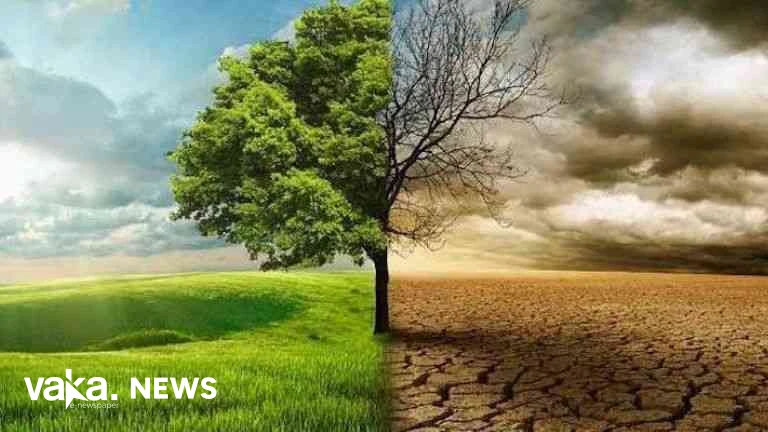Revisiting proverbs that can be applied to environmental conservation
- Category: General

- By Dion Kajokoto
In oral tradition passed down from generation to generation, PROVERBS have served as an effective means of reminding, educating, and training local communities about the values of life. With the help of cultural identity, worldview, and heritage-based education, proverbs have grown to be a significant component of indigenous knowledge systems and human wisdom that may be applied to environmental conservation to warn, save lives, nurture, and conserve trees. Indigenous groups have relied on forest resources for their traditional ways of life and subsistence since the beginning of time. Forests therefore required to be preserved by wisdom developed as essential communication and inclusive instruments with extensive instructional components, in addition to participatory practices.
Local communities treasured environment as a necessary resource for survival, although occasionally giving the impression that they undervalued woods by the reckless destruction of trees, water resources, and physical landscapes. This is the reason why nature is referred to as mother nature, mother land, possessing the attributes of an unendingly loving and caring woman. Nature evolved to represent fertility, life, and the generation of forest products and ecosystem services. The usage of proverbs, some of which portrayed nature, animals, human behaviors, attitudes, and belief systems, was crucial to the growth of traditional ecological knowledge.
Aive madziva ave mazambuko means "what once seemed extraordinary now appears ordinary." This proverb literally applies to the physical world, where the once-mighty rivers have been impacted by soil erosion, siltation, and human activity. It can be applied to circumstances or individuals who were previously unstoppable, powerful, and frightening. Even large lakes in places like South America, the Middle East, and Chad have been reduced to little more than common swimming pools in certain instances and real-life experiences. As the saying goes, "The consequences of bad practices are revealed with the passage of time; they are not felt immediately."
Regarding the current scenarios of rapidly increasing global warming, they are not the result of events that occurred yesterday, but rather of events that have occurred over a long period of time as they have accumulated and built up in the atmosphere, leading to, among other things, extreme heat, flooding, moisture stress, lack of precipitation, droughts, and diseases. In this sense, these proverbs represent knowledge about using natural resources against human perceptions, beliefs, and worldview, and they are a part of the vast network of indigenous knowledge systems. As a result, cultural influences have an impact on people's behavior and must be comprehended in relation to belief systems. Proverbs from indigenous knowledge systems that focus on participation behaviors in forests and human connections with nature are essential to environmental stewardship.
This makes it possible for these proverbs to support livelihood restoration, behavior modification, and environmental conservation. An uncontrollable scenario might arise from an unregulated process, as stated by Kamoto Kamberevere and Kanopisa Matanda Mberi. According to this theory, small-scale wood harvesting and tree-cutting eventually led to extensive deforestation. Climate change is a worldwide problem that originated from small-scale fossil fuel combustion. Large-scale soil degradation, unsustainable land use practices, and irreversible deep scars on the earth's surface were all caused by what began as small-scale mining. Therefore, although unchecked human activity begins on a small scale, it grows either directly or indirectly into widely recognized worldwide issues that need to be resolved through international conferences.
When proverbs are utilized in environmental contexts, they possess the ability and knowledge to bring order out of chaos. People might act in surprising ways in stressful situations, as stated by Charovasei chando chakwidza hamba mumuti. Since trees are seen in this context as symbols of safety and sanctuary, it is important to preserve, protect, and grow them into sanctuaries.They need to be preserved because they offer a living, harmony, serenity, natural order, beauty, and quiet, among other things. Proverbs teach us that conservation behaviors follow the rules of the natural order of things rather than being decided upon at random. Proverbs serve as participatory and communicative instruments in this sense, adding to a vast network of knowledge about the entire system that makes up conservation efforts.
Through proverbs, local people are empowered to take control and be in charge of their environment.
Proverbs have an intrinsic value to inspire, regulate and value the natural environment thereby strengthening the relationship between humans and nature.
In this regard, proverbs are still useful while negating them results in communities undermining natural systems, cultural attributes and values which have sustained livelihoods for generations.
They have defined human systems and behaviours, helped people to see meaning in their survival and aspirations.
The gradual disappearance of proverbs as cultural symbols and indigenous knowledge systems has contributed to the dearth of forests and environmental growth.
Therefore, once lost, oral-based knowledge can be difficult to retrieve.
Foregrounding traditional knowledge, culture and language, can enhance community empowerment, identity and cohesion. Proverbs will continue to act as powerful cultural-environmental models determining behaviour towards environmental sustainability.
Peter Makwanya is a climate communicator. He writes in his capacity and he can be contacted on: petrovmoyt@gmail.com.






